- Details
-
Category: Media Releases
-
Published: Friday, 13 January 2023 15:54
#SantaMartaNoEstaSola
San Salvador. January 11, 2023.
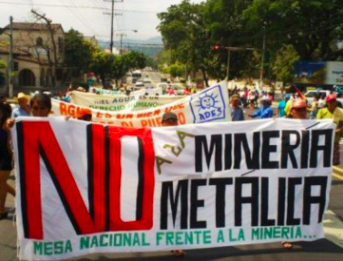 During the early hours of Wednesday, January 11, agents of the Attorney General Prosecutor's Office and the National Civil Police of El Salvador arrested Miguel Ángel Gámez, Alejandro Laínez García and Pedro Antonio Rivas, members of the Santa Marta community, a repopulated community made up of exiles and ex-combatants of the civil war, located in the municipality of Victoria, department of Cabañas.
During the early hours of Wednesday, January 11, agents of the Attorney General Prosecutor's Office and the National Civil Police of El Salvador arrested Miguel Ángel Gámez, Alejandro Laínez García and Pedro Antonio Rivas, members of the Santa Marta community, a repopulated community made up of exiles and ex-combatants of the civil war, located in the municipality of Victoria, department of Cabañas.
In a simultaneous operation, carried out on the same day and time, in the municipality of Guacotecti, Cabañas, state agents also detained Teodoro Antonio Pacheco, executive director of the Association of Economic and Social Development - ADES Santa Marta-, and Saúl Agustín Rivas, legal adviser of the above-mentioned community organization.
Read more ...
- Details
-
Category: Cerro Blanco
-
Published: Friday, 23 September 2022 17:57
Urgent Communique from the Municipal Commission Specific to the Consultation on Mining
The members of the Commission recognized and designated by the Municipality of Asuncion Mita, Jutiapa to organize the Municipal Consultation on Mining petitioned by citizens of our municipality, are facing the undemocratic backlash of the Ministry of Energy and Mines (MEM) through a statement dated September 19, where it took a position against the Municipal Consultation, a historic event that clearly marked the determination of the people against the installation of metallic mining operations through a consultation carried out under article 64 of the Guatemalan Municipal Code.
Read more ...
- Details
-
Category: Cerro Blanco
-
Published: Thursday, 22 September 2022 12:20
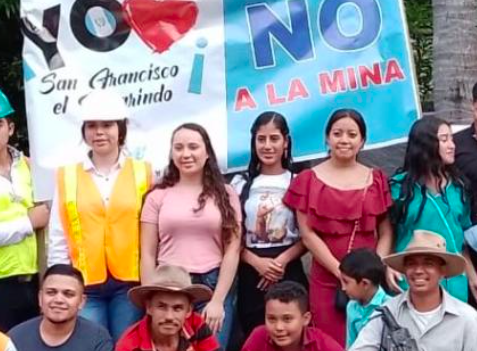 A municipal referendum was held on September 18 in Asunción Mita, Guatemala, that will impact the future of the Cerro Blanco mine. The question on the ballot aske
A municipal referendum was held on September 18 in Asunción Mita, Guatemala, that will impact the future of the Cerro Blanco mine. The question on the ballot aske
d people if they were in agreement with the presence of mining projects that would affect the natural resources in their territory, and the answer of the people was a resounding no.
Asuncion Mita is the capital of the eastern department of Jutiapa in Guatemala and is home to the Cerro Blanco mining project. Local communities and environmental organizations have long been concerned about the environmental impacts of this project on shared waterways in Guatemala, El Salvador, and Honduras. But years of frustrations about the lack of information on the project by government authorities and lack of prior consultation by company officials led local organizations to exercise their right to call a local referendum as outlined by article 64 of the municipal code.
Read more ...
- Details
-
Category: Cerro Blanco
-
Published: Wednesday, 21 September 2022 16:06

Different environmental and ecofeminist organizations, ecclesial movements, and regional activist alliances participated as international observers in the municipal consultation held this past Sunday, 18th of September in the municipality of Asunción Mita, Jutiapa, Guatemala. The consultation was related to the presence of metal mining projects in Asuncion Mita, home to the controversial Cerro Blanco mining project that poses environmentmental threats for both Guatemalan and Salvadoran communities.
Read more ...
- Details
-
Category: Cerro Blanco
-
Published: Sunday, 12 June 2022 16:38
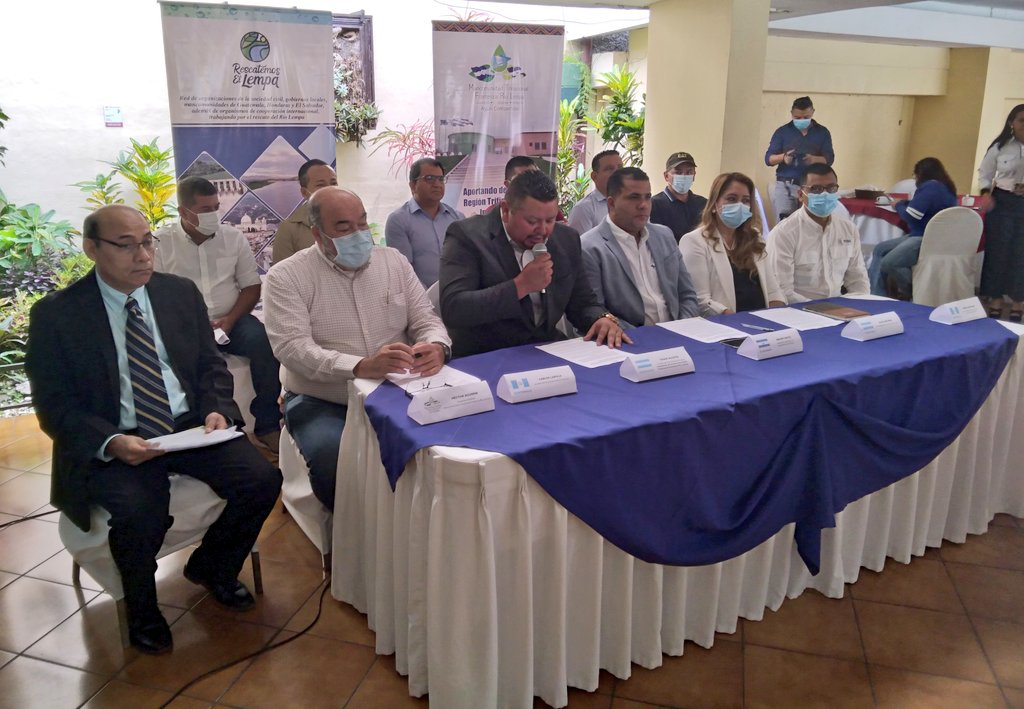 The Governments and Local Authorities of Guatemala, Honduras, and El Salvador, represented hereby are members of the Lempa River Trinational Border Association, and also the "Trinational Network for the Rescue of the Lempa River", are gathered today in response to the threat represented by metal mining exploitation and especially the "Cerro Blanco" mining project, located in the municipality of Asunción Mita, Department of Jutiapa, Republic of Guatemala, to issue the following public statement before the national and international public opinion:
The Governments and Local Authorities of Guatemala, Honduras, and El Salvador, represented hereby are members of the Lempa River Trinational Border Association, and also the "Trinational Network for the Rescue of the Lempa River", are gathered today in response to the threat represented by metal mining exploitation and especially the "Cerro Blanco" mining project, located in the municipality of Asunción Mita, Department of Jutiapa, Republic of Guatemala, to issue the following public statement before the national and international public opinion:
Read more ...
- Details
-
Category: Cerro Blanco
-
Published: Thursday, 09 June 2022 18:12
El Financiero
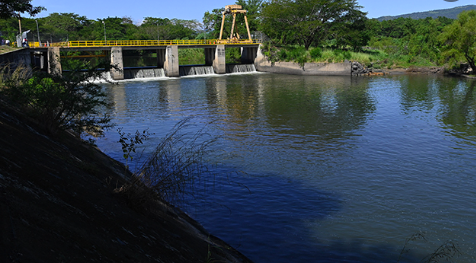 A dozen mayors from Guatemala, El Salvador, and Honduras expressed this Tuesday their opposition to the exploitation of the Cerro Blanco mine in Guatemala for contaminating the strategic Lempa River that runs through the three countries and supplies water to 4.5 million people. "We consider it imperative to express our position against mining exploitation, in any of its forms, that takes place in Guatemala, and in particular in the Cerro Blanco mine, located in the (Guatemalan) municipality of Asunción Mita," the mayors expressed in a statement.
A dozen mayors from Guatemala, El Salvador, and Honduras expressed this Tuesday their opposition to the exploitation of the Cerro Blanco mine in Guatemala for contaminating the strategic Lempa River that runs through the three countries and supplies water to 4.5 million people. "We consider it imperative to express our position against mining exploitation, in any of its forms, that takes place in Guatemala, and in particular in the Cerro Blanco mine, located in the (Guatemalan) municipality of Asunción Mita," the mayors expressed in a statement.
Grouped in the Río Lempa Trinational Association, which encompasses 26 municipalities, the councilors assure that the mine was initially in charge of the company "Entremares S.A" and is now managed by the Canadian company "Bluestone Resources INC" that "intends" to change the underground tunnel mining methodology, by open-pit mining.
Read more ...
 During the early hours of Wednesday, January 11, agents of the Attorney General Prosecutor's Office and the National Civil Police of El Salvador arrested Miguel Ángel Gámez, Alejandro Laínez García and Pedro Antonio Rivas, members of the Santa Marta community, a repopulated community made up of exiles and ex-combatants of the civil war, located in the municipality of Victoria, department of Cabañas.
During the early hours of Wednesday, January 11, agents of the Attorney General Prosecutor's Office and the National Civil Police of El Salvador arrested Miguel Ángel Gámez, Alejandro Laínez García and Pedro Antonio Rivas, members of the Santa Marta community, a repopulated community made up of exiles and ex-combatants of the civil war, located in the municipality of Victoria, department of Cabañas.
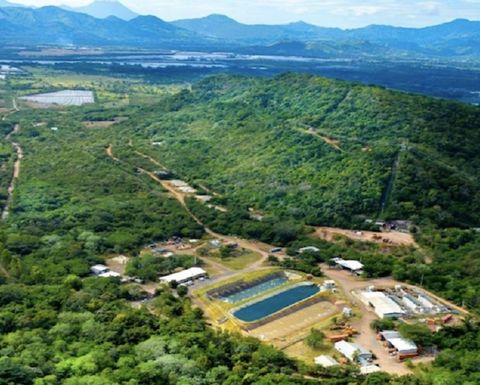
 A municipal referendum was held on September 18 in Asunción Mita, Guatemala, that will impact the future of the Cerro Blanco mine. The question on the ballot aske
A municipal referendum was held on September 18 in Asunción Mita, Guatemala, that will impact the future of the Cerro Blanco mine. The question on the ballot aske


 The Governments and Local Authorities of Guatemala, Honduras, and El Salvador, represented hereby are members of the Lempa River Trinational Border Association, and also the "Trinational Network for the Rescue of the Lempa River", are gathered today in response to the threat represented by metal mining exploitation and especially the "Cerro Blanco" mining project, located in the municipality of Asunción Mita, Department of Jutiapa, Republic of Guatemala, to issue the following public statement before the national and international public opinion:
The Governments and Local Authorities of Guatemala, Honduras, and El Salvador, represented hereby are members of the Lempa River Trinational Border Association, and also the "Trinational Network for the Rescue of the Lempa River", are gathered today in response to the threat represented by metal mining exploitation and especially the "Cerro Blanco" mining project, located in the municipality of Asunción Mita, Department of Jutiapa, Republic of Guatemala, to issue the following public statement before the national and international public opinion:
 A dozen mayors from Guatemala, El Salvador, and Honduras expressed this Tuesday their opposition to the exploitation of the Cerro Blanco mine in Guatemala for contaminating the strategic Lempa River that runs through the three countries and supplies water to 4.5 million people. "We consider it imperative to express our position against mining exploitation, in any of its forms, that takes place in Guatemala, and in particular in the Cerro Blanco mine, located in the (Guatemalan) municipality of Asunción Mita," the mayors expressed in a statement.
A dozen mayors from Guatemala, El Salvador, and Honduras expressed this Tuesday their opposition to the exploitation of the Cerro Blanco mine in Guatemala for contaminating the strategic Lempa River that runs through the three countries and supplies water to 4.5 million people. "We consider it imperative to express our position against mining exploitation, in any of its forms, that takes place in Guatemala, and in particular in the Cerro Blanco mine, located in the (Guatemalan) municipality of Asunción Mita," the mayors expressed in a statement.